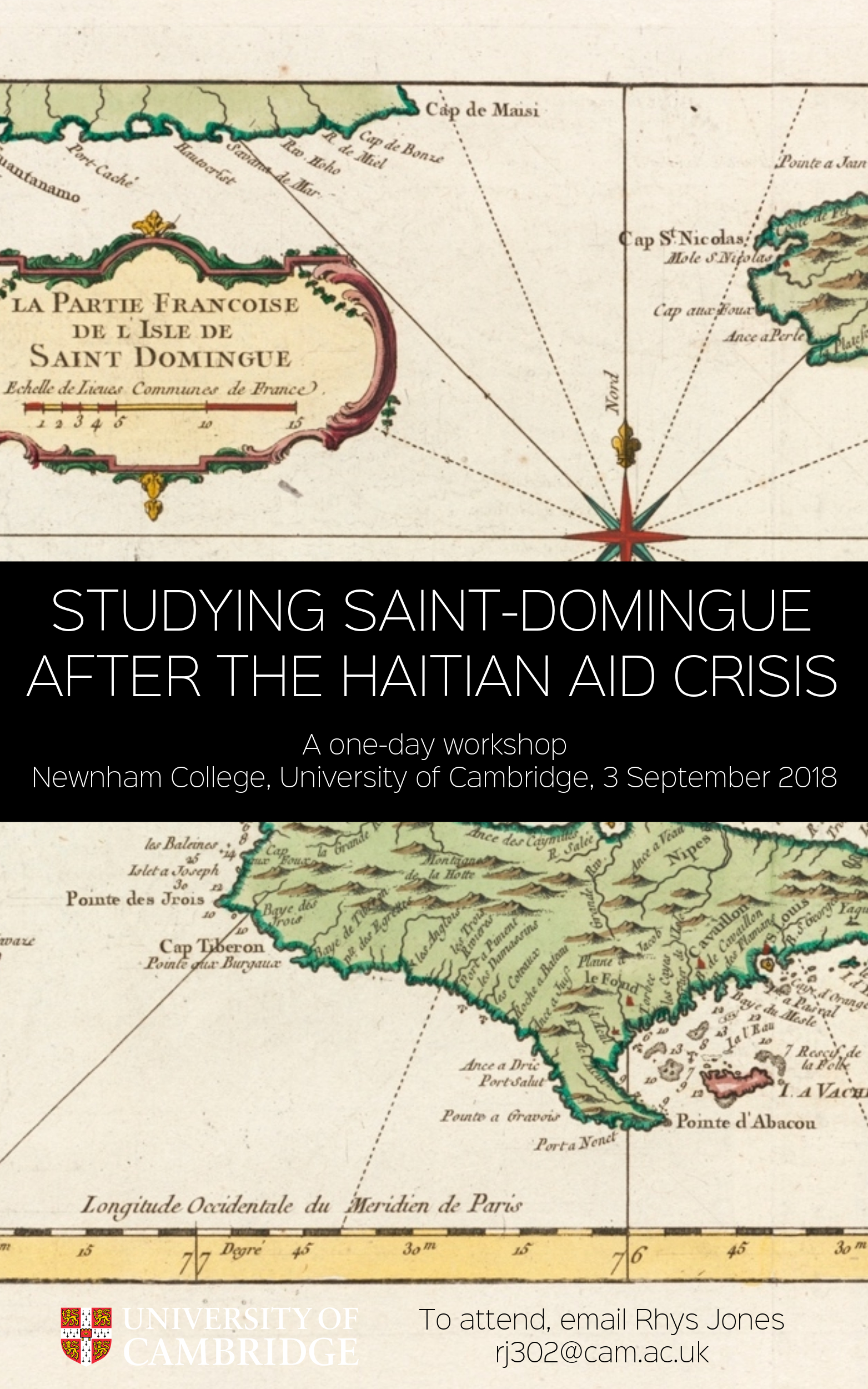 Overview
Overview
The allegations of sexual abuse made against aid workers following the Haitian earthquake of 2011 have scandalised public opinion and prompted debate about the ethics of aid and western intervention in Haiti.
How should the historian of colonial Haiti respond? How, more specifically, should anglophone European academics position their research of Saint-Domingue in the twenty-first century, given the need for sensitivity around the politics of neo-colonialism, the challenges of socio-linguistic distance, the dispersal of the Haitian archive, and the present push to decolonize academic curricula in the UK?
This workshop hopes to provide scholars with an opportunity to impact public debate on the legacies of colonialism in the Caribbean, foregrounding the issue of how the history of Haiti has been created by its historians. What has been remembered? What has been recorded? What has been silenced? It is designed to allow aid-workers, activists, policymakers and journalists to better inform academic researchers about the present-day challenges that might affect historical study of early-modern colonial spaces, thereby addressing the assumptions and inherent neo-colonialism that often confront European scholarship on the Caribbean.
Put simply, how can historians engage critically and collaboratively with other cultures and voices while avoiding the silence or insularity that have become the natural responses to guarding against perceived privilege? All these questions have acquired additional urgency in the wake of the Haitian aid scandal.
Event Details
Panel 1 – 09:30–11:00 – Present: What does Haiti get from its history?
|
Mario Gousse (UHUK)
|
Aida Kaisy (EJN)
|
Paul Clammer (Writer)
|
Fernando Ponz (EU)
|
Break 1 – 11:00–11:30
Panel 2 – 11:30–13:00 – Past: Who writes the history of Haiti and for whom?
|
Shodona Kettle (HSG) [S]
|
Julia Prest (Durham) Jack Webb (Manchester)
|
Hannah Durkin (Newcastle) Wendy Asquith (Nottingham)
|
Francesco Morriello (Vancouver) [S]
|
Lunch – 13:00–14:00
Panel 3 – 14:00–15:30 – Future: Do historians needs to write different histories of Haiti?
|
Pascale Palmer
|
Mélanie Lamotte
|
Cécile Bushidi
|
|
Break 2 – 15:30-16:00
Plenary – 16:00–16:30 – Building a connected & collaborative history of Saint-Domingue
